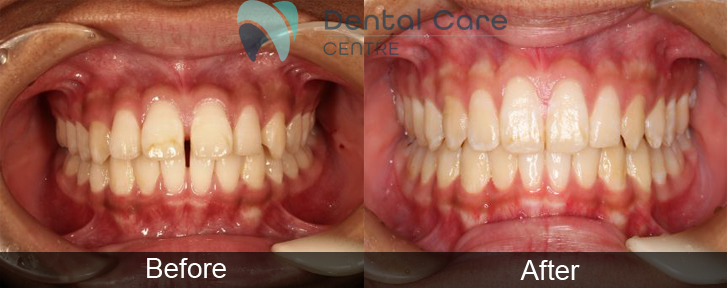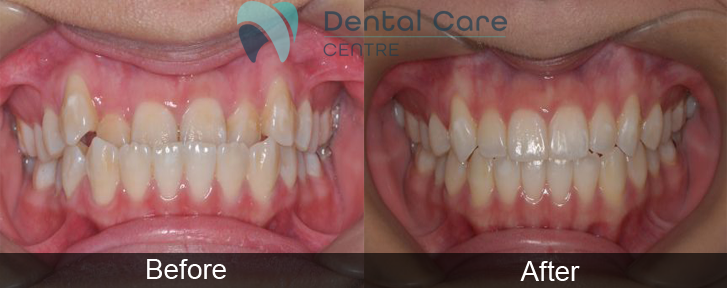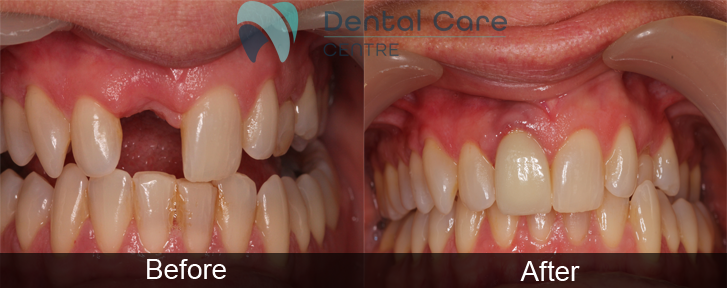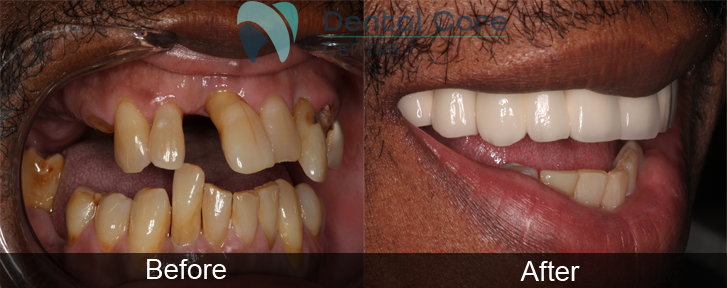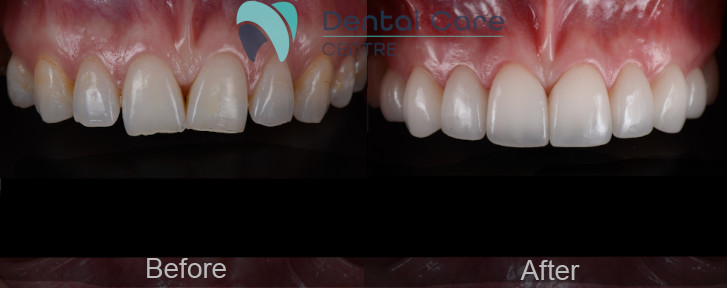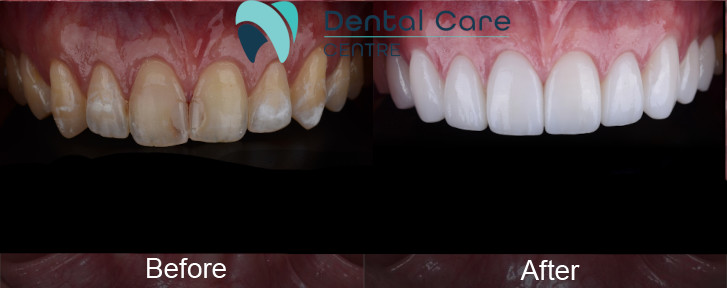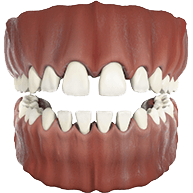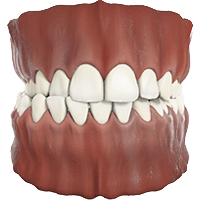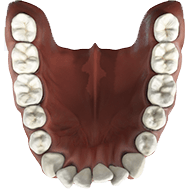Sedation Dentistry in London
What is Sedation Dentistry?
It is common to see dental patients developing anxiety or phobia from dental treatments due to unpleasant previous dental experiences. This makes them reluctant to visit the dentist, which may worsen the tooth condition and lead to further destruction and pain.
If you are one of these patients, the Dental Care Centre offers you the solution for pain-free comfortable dental visits through sedation dentistry.
Sedation dentistry helps nervous patients calm down during dental procedures with the help of medicine to improve patient comfort and compliance. During sedation, the patient is conscious, calmly observing all the procedures, and can respond to the dentist’s questions with the help of anxiety control medication.
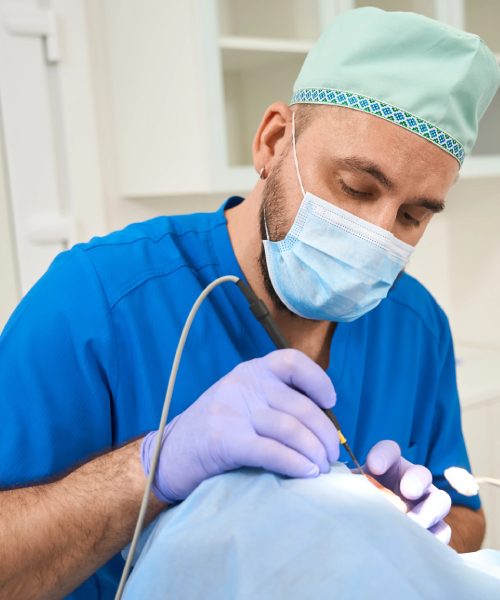
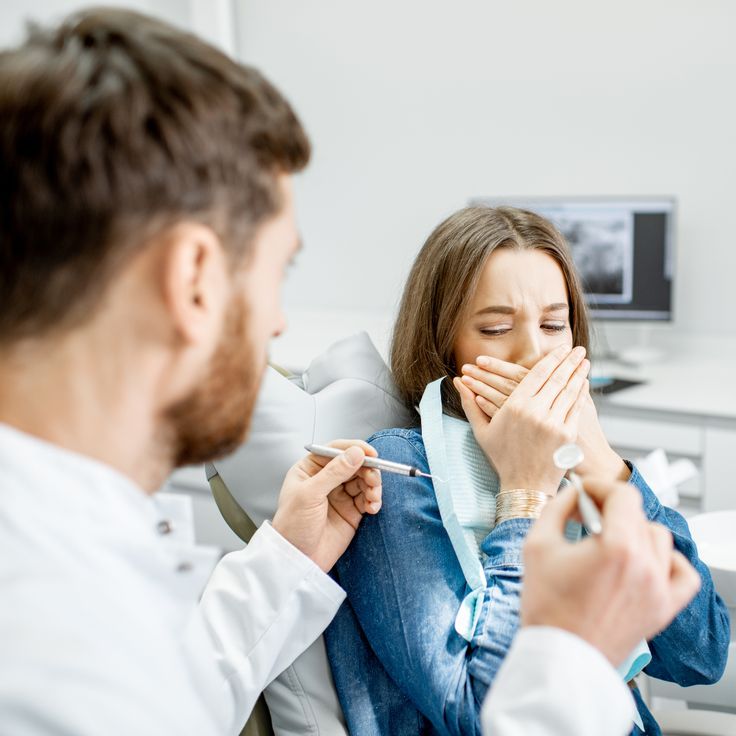
What are the Benefits of Sedation in Dentistry?
At Dental Care Centre, our expert dental specialists provide pain-free dental care through sedation. Dental sedation offers the following benefits:
Comfortable dental treatment: Pain during dental treatment can increase anxiety and nervousness. Sedation dentistry relaxes patients during dental procedures by minimising discomfort and pain.
Manage dental phobia: Most patients do not visit dentists due to fear of dental procedures and instruments. Sedative dentistry controls all these fears through anxiety control medication.
Improve treatment efficiency: if the patient is nervous, they may not allow the practitioner to continue the procedure. Sedative dentistry controls all these mishaps, provides a smooth, efficient comfortable dental treatment, and keeps patients relaxed throughout dental procedures.
Better patient compliance: Pain-free and comfortable dental treatment controls patient phobia, increases patient co-operation, and provides a pleasant experience to encourage the patients to maintain regular check-ups and good oral health.
Extend treatment time: in complex and lengthy dental procedures such as dental implant placement, gum surgery, and bone grafting, sedation dentistry provides comfortable and pain-free treatment to allow for the completion of lengthy procedures. In children’s dental treatment, sedative dentistry extends the option of dental treatment such as children’s milk teeth can be restored with filling rather than extraction as the child feels no pain.
Sedation Dentistry Solutions
During sedation, anxiety and pain-control medicine are provided to control patients’ anxiety and discomfort during dental treatment in different ways.
Inhalation: Nitrous oxide also known as laughing gas is used to control patient anxiety through the nasal route with the help of a mask. Nitrous oxide Inhalation sedation is the safest and most efficient sedation. It calms the patient and keeps them relaxed during dental treatment. The patient recovers from its effects soon after its distribution through oxygen administration. You are capable of walking out of the clinic without assistance.

Intravenous: The anxiety control medication is injected through veins. Mostly midazolam a relaxing medication is injected to control the patient’s nervousness. It is commonly recommended by dentists in hyperactive patients with excessive dental phobia, it provides patients with deep relaxation and comfort during dental procedures. If our experts choose this sedation technique, ensure to arrange a ride home.
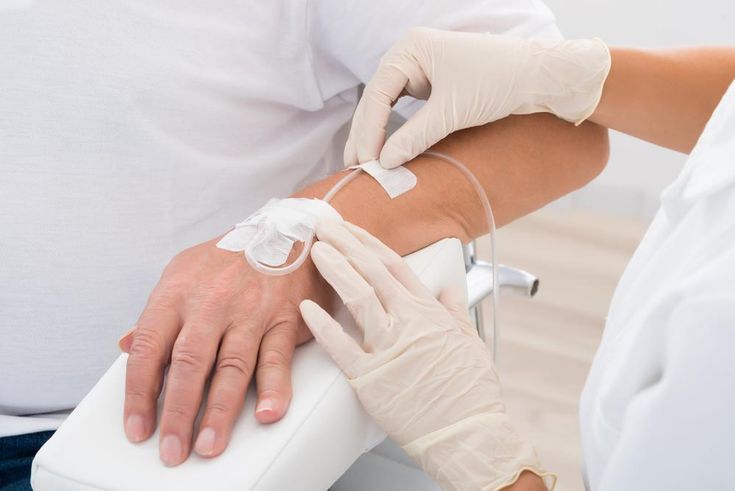
Procedure for Safe and Effective Sedation
Dental Care Centre is London’s leading clinic that provides patients comfortable dental care with sedative dentistry. Our trained dental specialists systemically administer sedative agents by making a treatment plan and taking all the precautionary measures to make the sedation administration safe and effective.
Initial assessment
Our dental expert first takes a complete medical, and dental history by asking questions about medication allergies, systemic diseases such as epilepsy or lung infection, past dental history, or experience with sedation.
After this complete dental examination, an evaluation of the need for complex dental procedures, an estimate of the treatment duration, and the assessment of patient cooperation. Access the patient’s willingness to perform dental treatment without sedation, after discussing the duration and complexity of the dental procedure.
Selection using the appropriate sedation method
After all the documentation process, our dental specialist selects the appropriate sedative method (inhale or intravenous) according to the patient’s medical condition, treatment needs, duration of treatment, and patient cooperation.
Patient consent
Our expert dental consultant, explains to patient in detail the need for sedation in performing effective dental procedures. Inform the patient about different sedative options, their advantages, potential risks, and limitations. Then explain the steps of sedation administration till recovery and aftercare.
After explaining all the important points ask the patient to sign a consent form and ensure that he is aware of all the steps of the sedation process and understands post-operative instructions.
Pre-operative preparation
Pre-operative preparation for the patient includes instructing the patient to have a meal 4 hours before sedation to avoid vomiting and take all the pre-existing medication such as diabetic control medication, and anti-hypertension medication as per scheduled.
Our staff is equipped with all devices to monitor vital, oxygen levels during sedation administration, and take immediate response to respond to any dental emergency.
Sedation administration
The sedation drug is administered according to patient and dental treatment needs. Our experts follow protocols of the recommended dose of sedative medicines, closely monitor the patient’s anxiety level, and then start the treatment with a local anesthesia injection. Sedation dentistry can control anxiety and mild pain for complete pain-free dental treatment; however, local anesthesia is also required.
Post-recovery monitor and after-care instructions
After completing the dental treatment, our dental specialists monitor the patient’s consciousness level and take vitals. Inhaled sedation patients recover within 30 minutes after dental treatment, while intravenous sedation takes around 24 hours for complete recovery. You may be informed of temporary mild drowsiness and headache that persists briefly.
Our experts will explain post-operative instructions, such as starting a liquid and soft diet and taking a normal hard diet after local anesthesia numbness recovery.
All these steps are necessary to reduce the risk associated with sedative dentistry. Dental sedatives provide the safest most effective and pain-free dental treatment.
Sedation dentistry is an advanced technique that controls patient nervousness and anxiety with dental procedures. In the Dental Care Centre, our expert dental specialists make a systemic treatment plan to administrate the sedation process to make it safe, reduce the risk, and provide a calm relaxed, and effective dental procedure.
FAQs
Sedation dentistry helps decrease gagging sensation and anxiety for nervous patients, either adults or children, to increase patient cooperation and extend the treatment time for a more efficient treatment.
Sedation can be administered through nasal or intravenous routes. The nasal route supplies the laughing gas as a sedation medication through a nasal cannula or mask. Intravenous sedation administers the sedation drug through a cannula directly to the bloodstream.
Our dental experts conduct a thorough dental examination, identify the required treatment, and collect a detailed medical history. The selection of the most suitable sedation technique depends on your anxiety level, the treatment procedure length, and your medical condition.
Sedation will decrease your awareness level to reduce pain and anxiety, and the local anesthesia will numb the operative area to avoid any pain.
No, you will not be asleep or unconscious. You will still be awake but with a decreased level of awareness.
Sedation dentistry is as safe for children as it is for adults. It can be safely administered to children to increase their obedience and cooperation during dental visits.
Depending on the type of sedation, inhaled sedation takes around 30 minutes, while intravenous sedation may take up to 24 hours to wear off.
It depends on the type of sedation drug. Inhalation sedation wears off after the drug is discontinued and you can drive safely, while if intravenous sedation was introduced, it may require more time to leave your system, and you may be required to arrange a drive home.
Sedation dentistry is a safe procedure when administered through our dental expert team and after collecting a complete medical history, to choose the most suitable sedation type and dose. You may experience a mild headache or drowsiness that subsides within a few hours.
Most commonly, sedation is not covered by dental insurance. Review your dental benefits plan, and if necessary, we can provide payment plans to enjoy a comfortable, pain-free dental treatment.
Implants Completed
Invisalign Cases Completed
Floors Dental Super Clinic
Patients Treated
Hygienist Appointments Completed
Awards and Accreditations
Smile Gallery
Invisalign adults
Invisalign children
Implant & reconstructive
Veneers
Patient Stories
Dentist Near You
If you require local dentist in London or any type of private or NHS dental treatment in New Cross, Brockley, Crofton Park, Ladywell, Forest Hill, Rushey Green, Nunhead, Peckham, Blackheath, Lee Green, Greenwich, Dulwich, Lewisham, Perry Vale, Camberwell, Downham, Sydenham, Bellingham, Millwall, Eltham , Rotherhithe, Surrey Docks, Herne Hill, Penge, Bermondsey, Gipsy Hill, Grove Park, Crystal Palace, Tulse Hill, Thornton Heath, Charlton, Bermondsey or Deptford contact the Dental Care Centre today.



